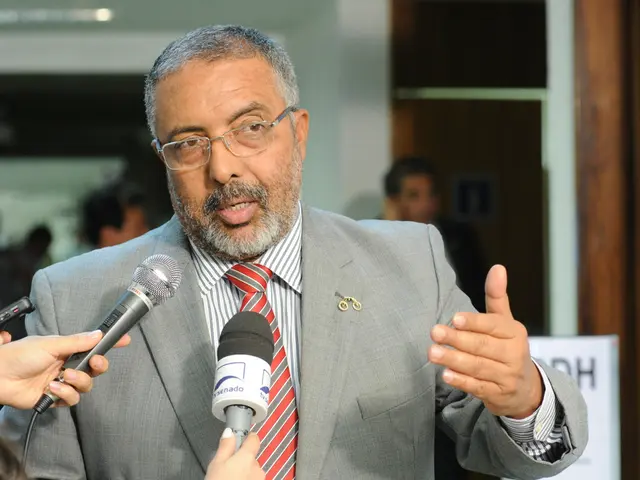Following the Saudi agreement, Pakistan expresses readiness for similar defense pacts with additional nations.
In a significant development, Saudi Arabia and Pakistan have signed a mutual defense pact, marking a strengthening of their decades-old security partnership. The agreement aims to develop aspects of defense cooperation between the two nations and strengthen joint deterrence.
The defense pact comes amidst a growing sense of apprehension in the region, with Gulf Arab states feeling a rising threat from Israel following Israel's strikes on Qatar. The agreement reflects shrinking confidence in the security provided by the United States to the region.
Contrary to speculation, the agreement between Saudi Arabia and Pakistan does not mention nuclear weapons or any payment to Pakistan. Abdulaziz Sager, chairman of the Saudi-based Gulf Research Centre, has stated that it's too early to draw conclusions on any nuclear element in the agreement. Adil Sultan, a former military officer, has emphasised that Pakistan's nuclear capability is mainly for India.
Pakistan's involvement in the Middle East, as indicated by this week's agreement, suggests a far greater involvement than its previous small military contingent in Saudi Arabia. Pakistan, the only nuclear-armed, Muslim-majority nation and fields the Islamic world's largest army, has a significant power projection into the Middle East.
Maleeha Lodhi, Pakistan's former ambassador to the United States, has noted that Pakistan's power projection into the Middle East is significant. Mushahid Hussain, a former chairman of the defense committee of Pakistan's Senate, stated that Pakistan's outlook has been pan-Islamist since its foundation.
India has stated it will study the implications of the Saudi-Pakistan agreement for national security and regional stability. Defence Minister Khawaja Asif stated that the defense agreement could be extended to cover other Gulf nations. Deputy Prime Minister and Foreign Minister Ishaq Dar hinted that some countries are showing interest in building strategic defense agreements with Pakistan.
The agreement is expected to provide Pakistan with a much-needed boost in its defense capabilities. Any new Saudi injection of funds could help Pakistan compete with India's larger defense budget. Pakistan's Prime Minister Shehbaz Sharif thanked the Saudi crown prince for his interest in expanding investments, trade, and business ties.
In conclusion, the Saudi-Pakistan defense pact brings Pakistan - and its nuclear umbrella - into the region's security equation. The agreement is a testament to the deepening strategic ties between the two nations and a shift in the regional dynamics of the Middle East.
Read also:
- United States tariffs pose a threat to India, necessitating the recruitment of adept negotiators or strategists, similar to those who had influenced Trump's decisions.
- Weekly happenings in the German Federal Parliament (Bundestag)
- Southwest region's most popular posts, accompanied by an inquiry:
- Discussion between Putin and Trump in Alaska could potentially overshadow Ukraine's concerns







